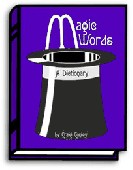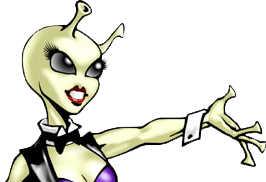Magic Words: A Dictionary
Craig Conley
LuLu
(Based on 1 review)

Our current fascination with magic words lies in the revival of interest in the art of close-up magic and grand illusions that began in the late twentieth-century and has continued into the twenty-first, fueled by the work of such performers as Lance Burton, David Copperfield, Siegfried & Roy, David Blaine, and Jeff McBride. Magic words are naturally as old as conjuring itself, echoes of the rhythm and vibration of creative power. Medieval conjurors first began using exotic words to give their performances an air of authentic secret knowledge. Whether they employed pseudo-Latin phrases, nonsense syllables, or esoteric terms from religious antiquity, these magicians were doing far more than merely adding a bit of enigmatic audio to their visuals. They were enhancing their specific illusions with a universal mystery: language as an instrument of creation. A great many magic words have stood the test of time, passed on from master to apprentice, generation through generation, to find expression on the modern stage and street. These ancient, musical, poetic incantations have a profound—but not necessarily unfathomable—mystique. From the familiar but oft-perplexing classics like abracadabra, alakazam, hocus pocus, presto-chango, shazam, and sim sala bim, to lesser known gems like the tongue-twisting tirratarratorratarratirratarratum, to whimsical modern inventions like izzy wizzy let’s get busy, these venerable magic words and phrases warrant a serious, scholarly tribute and indeed have earned a place of honor in their own special dictionary.
There is profound meaning in the clichéd image of a magician pulling a rabbit out of an empty hat with the magic word abracadabra. The magician is speaking an ancient Hebrew phrase that means “I will create with words.” He is making something out of nothing, echoing that famous line from Genesis: “Let there be light, and there was light,” only in this case the light is a white rabbit and perhaps a flash of fire. The magic word, whether it be abracadabra or another of the magician’s choosing, resonates with the audience because there is an instinctive understanding that words are powerful, creative forces. “The word has always held an ancient enchantment for humans,” says scholar Ted Andrews. “It hints of journeys into unseen and unmapped domains.” This dictionary seeks to reinstate dignity to the treasury of magic words that have lost some of their sparkle over the years, as well as to celebrate and codify the new magic words that magicians are adding to the lexicon every day. This dictionary is testament to the magic of language and urges magicians to reinvest their incantations with that primitive power everyone remembers at the deepest level. Whether the reader is a professional illusionist, an amateur at sleight-of-hand, or simply a word lover intrigued by the power of language, this dictionary is meant to enlighten and inspire everyone to create pure wonder and awe whenever they speak.
PRAISE FOR MAGIC WORDS
“Truly words of magic about magic words!” —Bill Wisch, creator of “The Magic Word” program
“Perfect for browsing on and on over fascinating information that is stimulating for the creation of either tricks or presentations, being quite difficult to let go of.” —Robert Neale, author of The Magic Mirror
“A fascinating piece of scholarship, and an invitation to wonder.” —Bernie DeKoven, author of The Well Played Game
Reviews
(Top ▲)
How does one review a dictionary, anyway? I suppose you could consider how easy it is to use; in this case the typography is excellent and gentle on the eyes, and Conley has cleverly listed the words in alphabetical order so that entries are quickly found. So, I suppose I could declare this book a success, end the review here, and go back to practicing my strike second deal.
But I won't, of course.
Magic Words: A Dictionary is far too intriguing for such a glib brush off, and I really want you, dear reader, to consider adding this book to your magical library. I don't think you'll regret it, it has a lot to offer any thoughtful and historically-interested magician.
The book begins with a fascinating essay that's almost worth the price the publication by itself. It discusses the history and nature of magic words, and tells the story of how this unique book came about. The piece infuses magic words with importance and illuminates the motivations of its author, magician and writer Craig Conley. In brief, Conley attended a show at the Magic Castle where an audience member, a lay person mind you, interjected a magic word during key moments of the show she was seeing, expressing aloud what she felt missing--ritual and mystery.
It's interesting, and somewhat sad, that magician's seem to have grown afraid of using magic words. They're rare these days, with perhaps the only time you hear them used is in jest, such as having the birthday party children shout "please"--the magic word their parents have taught them. That's a real shame, the magicians of the past understood that taking magic seriously enhances the performance and that sometimes magic words can inject just the right amount of mystery, drama, and gravitas.
I know that I've certainly never taken magic words seriously, but after reading much of Conley's book, I decided to give them a try and I'm happy with the results. Studying the book has also opened a number of new avenues to explore, thanks to the mini-essays that accompany each of the over 500 words the book catalogs. The words are drawn from a variety of sources including literature, plays, movies, and from magician's acts--both historic and contemporary--so many that I was left wondering just how in the word Conley managed to unearth them all.
There are many interesting tidbits for you to unearth. For example, Howard Thurston used "Hiram Abif" as the magic word in one of his pieces. A word of power that probably startled any Freemasons, or even anti-masons, in the audience. (Hiram Abif is the legendary architect of Solomon's Temple.) I almost can't imagine chosing such a loaded word, and I admire, and wonder about, Thurston's decision to do so.
That's the kind of rabbit hole that Magic Words can lead you down, and there's one on virtually every page. You'll be tempted to read the book straight through, so as not to miss anything. Instead, though, I suggest treating the book as an inspirational oracle. Practice a bit of bibliomancy and open to a random page, then see where the magic words take you. No matter how you approach it, Conley has given us a delightful resource that entertains, informs, and inspires. If only more books, especially those for magicians, offered as much.
But I won't, of course.
Magic Words: A Dictionary is far too intriguing for such a glib brush off, and I really want you, dear reader, to consider adding this book to your magical library. I don't think you'll regret it, it has a lot to offer any thoughtful and historically-interested magician.
The book begins with a fascinating essay that's almost worth the price the publication by itself. It discusses the history and nature of magic words, and tells the story of how this unique book came about. The piece infuses magic words with importance and illuminates the motivations of its author, magician and writer Craig Conley. In brief, Conley attended a show at the Magic Castle where an audience member, a lay person mind you, interjected a magic word during key moments of the show she was seeing, expressing aloud what she felt missing--ritual and mystery.
It's interesting, and somewhat sad, that magician's seem to have grown afraid of using magic words. They're rare these days, with perhaps the only time you hear them used is in jest, such as having the birthday party children shout "please"--the magic word their parents have taught them. That's a real shame, the magicians of the past understood that taking magic seriously enhances the performance and that sometimes magic words can inject just the right amount of mystery, drama, and gravitas.
I know that I've certainly never taken magic words seriously, but after reading much of Conley's book, I decided to give them a try and I'm happy with the results. Studying the book has also opened a number of new avenues to explore, thanks to the mini-essays that accompany each of the over 500 words the book catalogs. The words are drawn from a variety of sources including literature, plays, movies, and from magician's acts--both historic and contemporary--so many that I was left wondering just how in the word Conley managed to unearth them all.
There are many interesting tidbits for you to unearth. For example, Howard Thurston used "Hiram Abif" as the magic word in one of his pieces. A word of power that probably startled any Freemasons, or even anti-masons, in the audience. (Hiram Abif is the legendary architect of Solomon's Temple.) I almost can't imagine chosing such a loaded word, and I admire, and wonder about, Thurston's decision to do so.
That's the kind of rabbit hole that Magic Words can lead you down, and there's one on virtually every page. You'll be tempted to read the book straight through, so as not to miss anything. Instead, though, I suggest treating the book as an inspirational oracle. Practice a bit of bibliomancy and open to a random page, then see where the magic words take you. No matter how you approach it, Conley has given us a delightful resource that entertains, informs, and inspires. If only more books, especially those for magicians, offered as much.



